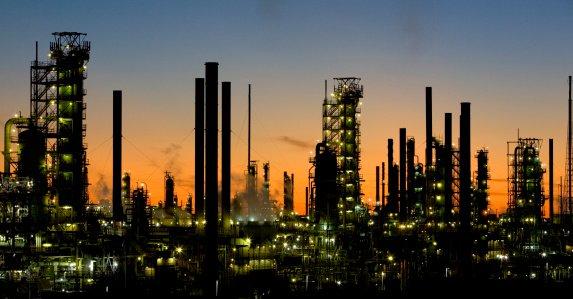BAKU, Azerbaijan, Sept.24
By Leman Zeynalova – Trend:
Refiners in Europe are facing serious problems now, Mariam Almaszade, chief executive of SOCAR Trading, the trading arm of Azerbaijan's state oil company SOCAR said, Trend reports.
"It is impossible to work in such conditions. I do not rule out some of them leaving the market, potentially those with less sophisticated refineries," Almaszade told Argus.
She noted that diesel demand in Europe is unlikely to recover until well into 2021, and struggling refiners in the region will come under further pressure.
Almaszade said that storages were full, while "refining margins were very narrow or negative". "Do I expect a sharp demand rebound? No, I do not see it this year and even for the following six to nine months, unless something extraordinary happens — for example, a Covid-19 vaccine becomes available to everyone," she said.
Fitch Solutions says the global diesel market is forecast to remain oversupplied deep into the 2020s driven by rampant growth in global refining capacity and slowing demand growth in the developed markets (DMs).
“The outlook for diesel is broadly constructive over the longer term as virus effects dissipate, although growth will become more divergent between the DMs and EMs. Slowing growth in China and the US certainly represents a major downside risk, although the size of demand in both markets will continue to dwarf global peers in absolute volume terms. The slowdown in DM diesel demand will be most pronounced in Europe, as developed Europe’s growing aversion to diesel intensifies. The region’s long-term policies will continue to attempt to eradicate the fuel from roads as part of broader moves to cut pollution and tackle climate change – indeed, the share of diesel cars among all newly registered cars has climbed down to 30.5 percent in 2019, the lowest share since 2001. The political and economic outlook for the eurozone remains in a state of flux, as the UK and EU remain divided on key contentious issues amidst ongoing talks to secure a trade deal. A ‘limited’ trade deal remains the most likely outcome, although risks are weighted to the downside. Any delays to investment, shifting cost bases, trade disruptions and cuts to structural funding post-Brexit risk creating significant disruptions in key diesel-intensive sectors such as agribusiness, construction and manufacturing, especially in the UK, which would trigger further downward revisions to our forecasts.”
---
Follow the author on Twitter: @Lyaman_Zeyn






